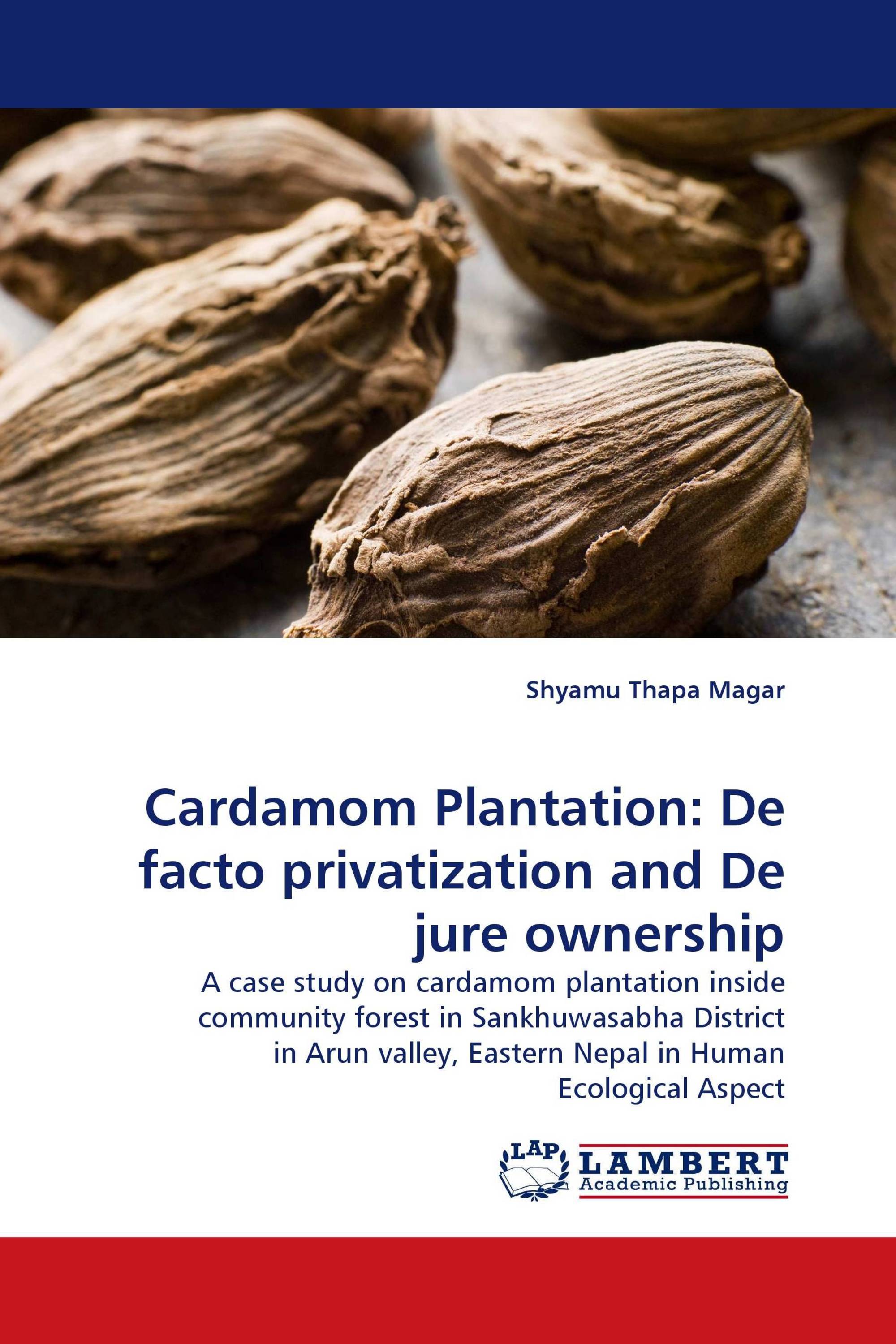Cardamom Plantation: De facto privatization and De jure ownership
A case study on cardamom plantation inside community forest in Sankhuwasabha District in Arun valley, Eastern Nepal in Human Ecological Aspect
LAP Lambert Academic Publishing ( 19.08.2010 )
€ 59,00
Cardamom plantation has become new source of income for villagers by using their unproductive sloppy land. Villagers being rational by understanding their land quality, understood cardamom plantation as a development, started planting cardamom on their land realizing of putting less effort, less labor intensive, brought good product, found better crop to plant than wasting their time and effort on planting millet and maize on which they have to wait for months with labor drudgery. Villagers are planting cardamom on their unproductive land for better income using less labor. Cardamom garden has been seen as a property or cash on which you can draw money from credit card whenever is in need and overcome their economic problems as well as maintained their social status in a society. both males and females are found engage in the cardamom plantation, where women''s hard work is demanded during weeding. people started to plant cardamom inside community forest, a government land, dividing with each other among users, which is not acceptable according to law.
Kitap detayları: |
|
|
ISBN-13: |
978-3-8383-8821-2 |
|
ISBN-10: |
3838388216 |
|
EAN: |
9783838388212 |
|
Kitabın dili: |
English |
|
Yazar: |
Shyamu Thapa Magar |
|
Sayfa sayısı: |
156 |
|
Yayın tarihi: |
19.08.2010 |
|
Kategori: |
Tarım, bahçecilik, ormancılık, balıkçılık, beslenme |




